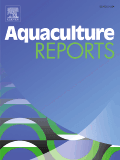
Aquaculture Reports
Scope & Guideline
Exploring Innovative Solutions in Aquatic Science
Introduction
Aims and Scopes
- Sustainable Aquaculture Practices:
Research focused on developing methods and practices that improve the sustainability of aquaculture systems, including resource-efficient feeding strategies and environmental management techniques. - Nutritional Physiology:
Studies examining the nutritional requirements of various aquatic species, exploring the impacts of different dietary components, supplements, and feed formulations on growth, health, and overall performance. - Genetic and Molecular Research:
Investigation of genetic factors influencing growth, disease resistance, and reproductive performance in aquatic organisms, utilizing genomic and transcriptomic approaches. - Health Management and Disease Control:
Research addressing the prevention and management of diseases in aquaculture, including the use of probiotics, vaccines, and other health-promoting strategies. - Environmental Interactions:
Studies on how environmental factors such as temperature, salinity, and pollution affect the health and growth of aquatic species, as well as their interactions with microbial communities. - Innovative Aquaculture Technologies:
Research on new technologies and methodologies that enhance aquaculture efficiency, including biofloc systems, recirculating aquaculture systems (RAS), and aquaponics. - Behavioral and Physiological Studies:
Research on the behavioral and physiological responses of aquatic species to various stressors, including environmental changes, feeding strategies, and social dynamics.
Trending and Emerging
- Alternative Protein Sources:
There is a notable increase in research exploring the use of alternative protein sources, such as insect meal, plant-based proteins, and by-products from food processing, to replace traditional fishmeal and improve sustainability. - Microbiome and Gut Health:
An emerging focus on the gut microbiome and its role in fish health and nutrition, highlighting the importance of microbial interactions and their impact on growth performance and disease resistance. - Omics Technologies:
The use of omics technologies (genomics, transcriptomics, proteomics) is on the rise, providing deeper insights into the biological mechanisms underlying growth, health, and disease resistance in aquaculture species. - Stress Responses and Welfare:
Increasing research into the physiological and behavioral responses of aquatic species to various stressors, emphasizing the importance of welfare in aquaculture practices. - Integrated Aquaculture Systems:
There is a growing trend towards research on integrated aquaculture systems, such as aquaponics and polyculture, which aim to enhance resource use efficiency and sustainability. - Innovative Health Management Strategies:
Emerging studies focus on innovative approaches to disease management, including the use of probiotics, vaccines, and immunostimulants to improve fish health and reduce reliance on antibiotics.
Declining or Waning
- Traditional Feed Resources:
Research surrounding traditional fishmeal and fish oil sources has seen a decline, as there is a growing emphasis on alternative protein sources such as insects, plants, and by-products to enhance sustainability. - Basic Aquaculture Techniques:
Papers focused solely on basic aquaculture practices without an innovative angle or sustainability perspective have become less frequent, as the field shifts towards more advanced and integrated approaches. - General Environmental Impact Studies:
While environmental studies remain important, there has been less emphasis on general impact assessments, with a shift towards more specific and actionable research findings that can directly inform aquaculture practices. - Non-genetic Breeding Strategies:
Research related to traditional non-genetic breeding strategies is declining, as the focus has shifted towards genetic selection and genomics to enhance breeding outcomes.
Similar Journals
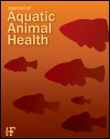
JOURNAL OF AQUATIC ANIMAL HEALTH
Fostering collaboration for healthier aquatic ecosystems.JOURNAL OF AQUATIC ANIMAL HEALTH, published by Wiley, is a premier scholarly journal dedicated to advancing the field of aquatic animal health. With an ISSN of 0899-7659 and an E-ISSN of 1548-8667, this journal has established itself as a key resource for researchers, professionals, and students involved in aquatic sciences since its inception in 1989. Covering a comprehensive range of topics within aquatic animal health, the journal aims to disseminate significant findings and foster multidisciplinary collaborations. As of 2023, it is ranked in the third quartile (Q3) within the broader category of Aquatic Science, according to Scopus, reflecting its growing influence in the field. Operating without an open access model, the journal maintains stringent standards for publication, ensuring that it remains a respected platform for high-quality research. Located in Hoboken, NJ, the journal is poised to continue contributing vital insights that enhance the understanding and management of aquatic animal health worldwide.

BOLETIM DO INSTITUTO DE PESCA
Illuminating emerging studies in aquatic sciences.BOLETIM DO INSTITUTO DE PESCA, published by the Instituto Pesca, is a Brazilian journal dedicated to advancing the fields of Animal Science and Aquatic Science. With its Open Access policy adopted in 2008, the journal ensures that research is widely disseminated, fostering collaboration and innovation among researchers, professionals, and students alike. Despite its recent Q4 category rankings in the 2023 metrics for both disciplines, the journal plays a vital role in providing a platform for emerging studies and critical discussions related to aquatic ecosystems and fisheries management. Covering a wide range of topics within its scope, BOLETIM DO INSTITUTO DE PESCA publishes original research, reviews, and case studies, stimulating academic dialogue and contributing to the sustainable management of aquatic resources in Brazil and beyond. This journal is an essential resource for anyone invested in marine and freshwater biology, ecology, and conservation.

Scientific Papers-Series D-Animal Science
Exploring the Future of Animal Breeding and WelfareScientific Papers-Series D-Animal Science is a prominent academic journal published by the University of Agronomic Sciences and Veterinary Medicine Bucharest (USAMV). With its ISSN number 2285-5750 and E-ISSN 2393-2260, this journal serves as a critical platform for the dissemination of innovative research in the field of animal science and veterinary medicine. The journal focuses on a broad range of topics, from animal breeding and nutrition to health and welfare, contributing significantly to the advancement of knowledge and practice within these vital areas. Although it currently does not offer open access, the journal maintains a commitment to high-quality research with the potential to influence policy and practice in animal sciences. Researchers, professionals, and students are encouraged to engage with the journal to enhance their understanding and contribute to ongoing discussions in this essential field. The journal's rich academic environment fosters collaboration and encourages submissions of original studies, reviews, and case reports that can shape the future of animal science.
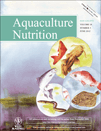
AQUACULTURE NUTRITION
Transforming feed management for sustainable aquaculture.Aquaculture Nutrition is a leading peer-reviewed journal published by Wiley-Hindawi, dedicated to advancing the field of aquatic sciences through high-quality research on nutritional physiology and feed management in aquaculture species. Established in 1995, and with its converged years running until 2024, this journal has garnered a prestigious Q1 ranking in Aquatic Science, reflecting its significant impact and relevance as one of the top journals in the sector, evidenced by its 91st percentile ranking in the Scopus database for Agricultural and Biological Sciences. Aquaculture Nutrition provides an essential platform for researchers, professionals, and students to explore innovative methodologies, nutritional strategies, and species-specific dietary needs, fostering sustainability and productivity in aquaculture practices. While the journal offers a hybrid of open access and subscription-based content, it remains a critical resource for academics wishing to contribute to or stay abreast of advancements in aquatic nutrition research. With its strong focus on the intersection of aquaculture and nutritional science, Aquaculture Nutrition plays a vital role in addressing global food security challenges and promoting sustainable practices in the aquaculture industry.

MARINE BIOTECHNOLOGY
Exploring the Depths of Marine InnovationMarine Biotechnology is a premier journal published by Springer, specializing in the interdisciplinary research at the intersection of marine biology and biotechnology. With an ISSN of 1436-2228 and a robust e-ISSN of 1436-2236, this journal has been a cornerstone for scholars and practitioners since its inception in 1999, and is positioned to continue shaping the field through 2024. Recognized for its contributions in Aquatic Science and Biotechnology, it currently holds a Q2 ranking in both categories for 2023, highlighting its relevance and impact within the global scientific community. With a Scopus rank of 64/247 in Aquatic Science and 149/311 in Biotechnology, Marine Biotechnology offers a vital platform for disseminating cutting-edge research that encompasses environmental sustainability, pharmaceutical applications, and bioinformatics. The journal promotes open access to its valuable content, ensuring that research is readily available to a wide audience. By bringing together leading researchers and fostering collaborations, Marine Biotechnology stands as an essential resource for those committed to advancing our understanding of marine resources and their applications in biotechnology.

Turkish Journal of Fisheries and Aquatic Sciences
Exploring the depths of fisheries and aquatic science.Turkish Journal of Fisheries and Aquatic Sciences, published by the CENTRAL FISHERIES RESEARCH INST, is a key resource in the fields of Fisheries and Aquatic Sciences, catering to a global community of researchers and professionals. With its ISSN 1303-2712 and E-ISSN 2149-181X, this journal offers an engaging platform for the dissemination of high-quality research from Turkey, covering critical topics within Animal Science and Aquatic Science. As a third quartile journal in both categories (Q3, 2023), it provides valuable insights, contributing to a growing body of literature that addresses aquatic ecosystems, fisheries management, and biodiversity conservation, thereby enhancing the sustainability of aquatic resources. The journal has shown considerable impact, ranking 144th in Animal Science & Zoology and 116th in Aquatic Science within Scopus, reflecting its relevance and credibility within the academic community. Operating from 2008 to 2024, it invites open access submissions to foster collaboration and knowledge sharing among scientists, students, and practitioners alike, reinforcing its dedication to advancing the science of aquatic ecosystems.
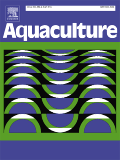
AQUACULTURE
Pioneering research in the heart of aquaculture innovation.AQUACULTURE is a premier academic journal dedicated to the field of aquatic science, published by Elsevier. With a robust Impact Factor, the journal is renowned for its significant contributions to aquatic biology and the sustainable development of aquaculture practices. Since its inception in 1972, AQUACULTURE has established itself as an essential resource for researchers and professionals in the industry, regularly ranked in the Q1 category of aquatic science journals and positioned in the 14th percentile of its field according to Scopus rankings. Covering a wide array of topics including fish biology, aquaculture technology, sustainable practices, and environmental impacts, AQUACULTURE aims to disseminate innovative research findings that drive the industry forward. The journal, accessible to a global audience from its base in the Netherlands, continues to foster collaboration, discussion, and application of research to both academic and practical realms within aquaculture. Researchers and students alike will find valuable insights and current trends in this highly respected publication.

Journal of Fisheries
Connecting global minds through fisheries innovation.The Journal of Fisheries, an esteemed publication by BDFISH, serves as a pivotal platform for disseminating cutting-edge research in the field of fisheries science. With its commitment to Open Access since 2013, the journal ensures that vital knowledge is accessible to researchers, professionals, and students worldwide, promoting widespread dissemination of fishery-related discoveries. By featuring high-quality peer-reviewed articles, the Journal of Fisheries aims to advance the understanding of aquatic ecosystems, sustainable fishing practices, and the broader implications of fisheries on biodiversity and food security. Located at the Dept of Fisheries, University of Rajshahi, Bangladesh, this journal plays a crucial role in fostering academic dialogue and collaboration, contributing significantly to the growth and development of fisheries research globally.
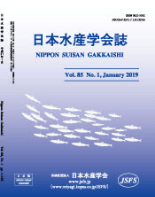
NIPPON SUISAN GAKKAISHI
Navigating the Waters of Aquatic DiscoveryNIPPON SUISAN GAKKAISHI, published by the Japanese Society of Fisheries Science, is a prestigious journal with a long history dating back to its inaugural issue in 1932. This journal, which spans key contributions to the field of Aquatic Science, serves as a vital platform for the dissemination of important research findings related to fisheries and aquatic biology, fostering knowledge and innovation in Japan and beyond. Although it is not an open-access publication, its rigorous peer-review process ensures the quality and integrity of the articles published. The journal is currently listed in the Q4 category for Aquatic Science according to the 2023 metrics, placing it within a niche but significant corner of the research landscape. With an ISSN of 0021-5392 and E-ISSN of 1349-998X, it continues to provide essential insights that benefit researchers, professionals, and students alike, highlighting advancements and challenges within aquatic ecosystems over a converged year span that continues to evolve through to 2024.
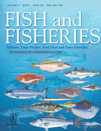
FISH AND FISHERIES
Advancing aquatic science for a sustainable future.FISH AND FISHERIES is a premier academic journal published by Wiley, dedicated to advancing knowledge in the fields of aquatic science, ecology, and oceanography. With an impressive impact reflected in its 2023 categorization in the Q1 quartile across multiple disciplines—including Aquatic Science and Management, Monitoring, Policy and Law—it serves as an essential resource for researchers, professionals, and students alike. This journal includes rigorous, peer-reviewed articles that address the multifaceted aspects of fish biology, conservation, and sustainable fisheries management. The journal's Scopus rankings further validate its significance, with top positions in Earth and Planetary Sciences, and its commitment to fostering scientific dialogue in an era where the oceans and aquatic ecosystems face unprecedented challenges. Despite not being an Open Access journal, FISH AND FISHERIES remains a vital platform for innovative research that informs policy and drives stewardship of fish populations and their habitats.